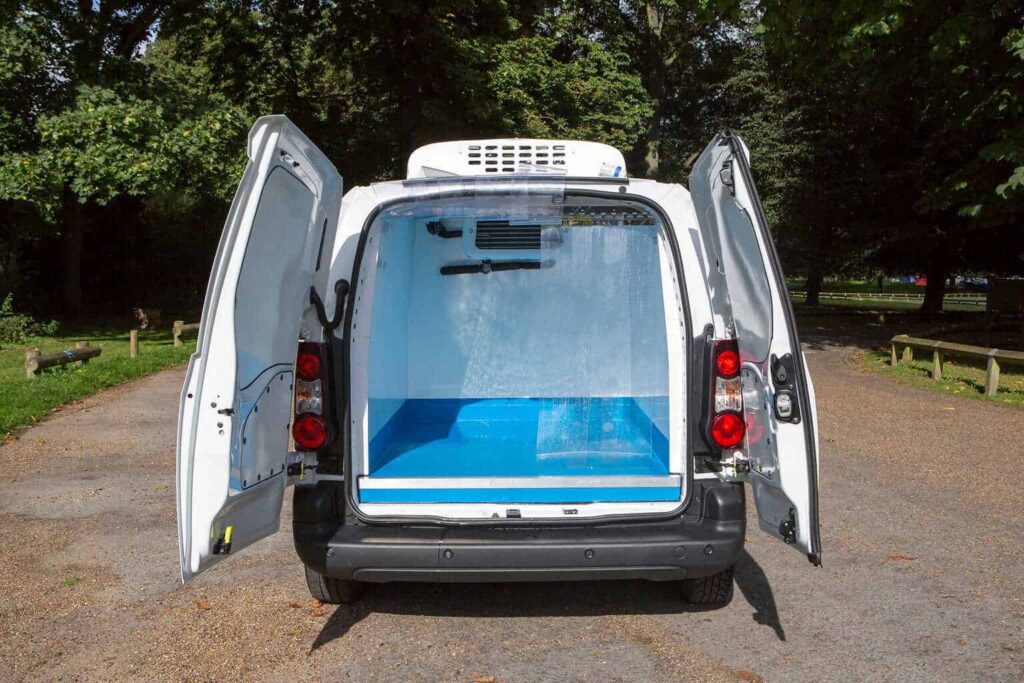The COVID-19 pandemic has been a watershed moment for global supply chains, exposing vulnerabilities and necessitating swift adaptations by a vast landscape of businesses. The refrigerated transport sector was particularly impacted, as they play a crucial role in maintaining the cold chain for perishable goods.
This post aims to explore the pandemic’s profound impact on this sector and extract valuable lessons for building a more resilient supply chain. As we navigate an uncertain future, these lessons are not just mere reflections but roadmaps for enduring and thriving in the face of adversity.
The Pre-Pandemic State of Refrigerated Transport
Before the pandemic struck, the refrigerated transport industry was a well-oiled machine, pivotal to national and global trade. It ensured the safe and timely delivery of perishable goods, ranging from food items to pharmaceuticals, across international borders.
Companies operated within a framework of established routes and schedules, with efficiency and reliability being the key drivers. However, this sector was not without its challenges. Issues such as fuel costs, vehicle maintenance, and adherence to diverse regulatory standards were constant concerns. The industry, largely reliant on just-in-time delivery models, was finely balanced – efficient yet potentially vulnerable to unforeseen disruptions.
Immediate Impacts of the Pandemic on Refrigerated Transport
The onset of the pandemic was akin to a shockwave hitting the refrigerated transport sector. As countries went into lockdown, the immediate impact was a disruption in supply and demand. Panic buying led to short-term surges in demand for certain goods, while overall consumer spending dropped. Border closures and restrictions created bottlenecks, severely disrupting established supply routes and schedules.
Companies faced unprecedented challenges in maintaining the cold chain. Delays at borders, for instance, risked the integrity of temperature-sensitive cargo. In some cases, perishable goods spoiled before reaching their destination, leading to significant financial losses and supply shortages.
Despite these challenges, the industry showed remarkable agility. For example, a UK-based logistics company quickly adapted by re-routing deliveries and using predictive analytics to anticipate lockdown impacts. Another case involved a pharmaceutical transport firm that implemented stringent health checks and sanitation protocols to ensure driver safety and prevent contamination.
The Combined Impact of Brexit and the COVID Pandemic
The simultaneous occurrence of Brexit and the COVID-19 pandemic presented a unique and compounded challenge for the UK’s refrigerated transport sector. These two monumental events significantly reshaped the operational landscape, creating a dual-layered complexity in supply chain management.
- Brexit’s Impact: The completion of Brexit brought about significant changes in the UK’s trading relationships, particularly with the European Union. New customs regulations, border checks, and documentation requirements led to delays and increased administrative burdens for refrigerated transport operators. These changes disrupted the established rhythm of cross-border trade, affecting the just-in-time delivery model that many businesses relied upon.
- Pandemic’s Disruption: The pandemic added an extra layer of difficulty. With lockdowns and travel restrictions, there were immediate impacts on workforce availability and transport efficiency. The unpredictability of border closures and quarantine rules further complicated logistics planning. The pandemic also led to fluctuating demand patterns, with certain goods seeing a surge in demand while others experienced a decline.
- Combined Effects: The overlap of Brexit and the pandemic created a scenario where refrigerated transport companies had to navigate a maze of new trade rules while also adapting to the unpredictable challenges posed by a global health crisis. This situation tested the resilience and adaptability of the sector to its limits. Supply chains had to be re-evaluated and restructured to address both the long-term implications of Brexit and the immediate exigencies of the pandemic.
For example, some companies diversified their supplier base and explored new markets outside the EU to mitigate the impact of Brexit, only to find these new routes disrupted by pandemic-related restrictions.
Others invested in advanced logistics technologies to streamline customs processes, which also proved beneficial in managing the dynamic and uncertain environment caused by the pandemic.
Adapting to New Realities: Changes and Innovations
The pandemic compelled the refrigerated transport industry to rethink and restructure. Operational strategies underwent rapid transformations. Route optimisation became crucial to circumvent closed borders and lockdown areas, while warehouse management adapted to handle unpredictable supply patterns.
Technological innovations played a key role. The Internet of Things (IoT) enabled real-time tracking of shipments, ensuring better control over the cold chain. Artificial Intelligence (AI) was employed for predictive analysis, forecasting potential disruptions and optimising routes accordingly.
Additionally, health and safety protocols were overhauled. Regular health checks, contactless deliveries, and enhanced vehicle sanitation became the norm. These measures not only protected the workforce but also ensured the integrity of transported goods.
Building Resilience: Key Lessons Learned
The pandemic has been a harsh but effective teacher. One of the foremost lessons is the need for flexibility and adaptability in operations. The ability to quickly pivot in response to changing circumstances proved invaluable. This agility must be a core component of future strategies.
Technology integration emerged as another critical factor. Data-driven decision-making, facilitated by advanced technologies, allowed for more responsive and efficient operations. The pandemic underscored the importance of having robust IT systems that can support remote monitoring and management.
Strengthening partnerships within the supply chain became crucial. Collaboration and transparent communication between suppliers, transporters, and customers helped mitigate risks and solve problems more effectively. This reinforced the idea that a resilient supply chain is not just about individual robustness but also about collaborative strength.
Diversifying supply sources and routes was another key takeaway. Relying on a single source or a fixed route proved risky during the pandemic. Companies that had diversified their supply chains fared better, as they were not wholly dependent on one source or route.
Long-Term Strategies for Resilient Refrigerated Transport
To build long-term resilience, the industry must invest in advanced technology and infrastructure. Automated systems, advanced refrigeration technologies, and sustainable vehicle designs will be crucial for future-proofing the sector.
A culture of continuous improvement and learning is essential. Companies must regularly review and update their practices, learning from past experiences and staying ahead of emerging trends.
Risk management and mitigation policies need to be in place. This includes having contingency plans for various crisis scenarios and diversifying logistics networks to avoid over-reliance on specific routes or suppliers. Regular risk assessments and proactive planning can significantly enhance the sector’s preparedness for future disruptions.
Additionally, collaboration with government and regulatory bodies is important. Advocating for supportive policies and participating in industry-wide initiatives can lead to more cohesive and effective responses to challenges. This collaboration can also help in aligning industry practices with national and international regulations, ensuring smoother operations across borders.
Protecting the Health of Refrigerated Van Operatives in the Future
The health and safety of refrigerated van operatives are paramount, not just for their well-being but also for the integrity of the supply chain. The COVID-19 pandemic underscored the importance of safeguarding these frontline workers. As we move forward, it is essential to implement and maintain robust health protection measures.
- Enhanced Health Protocols: Future health protection strategies should include regular health screenings and provision of personal protective equipment (PPE). In the context of a pandemic or similar health crisis, measures like social distancing, wearing masks, and frequent sanitization should be standard practice. Vaccinations and other preventive healthcare services could be facilitated by employers to ensure the well-being of their workforce.
- Mental Health and Wellbeing: The mental health and overall wellbeing of operatives should also be a priority. The stress and demands of the job, especially during challenging times like a pandemic, can be significant. Providing access to mental health support, counselling services, and ensuring work-life balance are critical for maintaining a healthy and productive workforce.
- Training and Awareness: Ongoing training programs should be implemented to keep operatives informed about the latest health and safety practices. This includes understanding the risks associated with their work, proper use of PPE, and procedures to follow in case of health emergencies. Regular drills and simulations can help in preparing them for unexpected scenarios.
- Ergonomics and Work Environment: The physical work environment should be designed to promote health and prevent injury. This includes ergonomic considerations in the design of vehicles and equipment, as well as ensuring comfortable working conditions, like adequate ventilation and temperature control.
- Technology Integration: Technology can play a key role in protecting the health of operatives. For instance, the use of wearables for health monitoring, automated systems for reducing human contact in high-risk areas, and AI-driven tools for workload management can significantly enhance worker safety.
The Role of Sustainability in Future Resilience
The integration of sustainability into refrigerated transport is not just an environmental imperative but a business one as well. Sustainable practices, such as using eco-friendly refrigerants and energy-efficient vehicles, can lead to cost savings in the long run and enhance the sector’s resilience.
Sustainability also impacts long-term resilience by ensuring compliance with evolving environmental regulations and meeting the increasing demand for green logistics solutions. As the world moves towards a more environmentally conscious future, the refrigerated transport sector must adapt to stay relevant and competitive.
Future trends are likely to see an increased focus on electric vehicles, solar-powered cooling systems, and other green technologies in refrigerated transport. These innovations will not only reduce the carbon footprint but also potentially offer greater reliability and efficiency.
Partnering with FridgeXpress in the New Operating Landscape: Key Advantages
In the evolving landscape of refrigerated transport, partnering with a specialised provider like FridgeXpress offers significant advantages. FridgeXpress, known for its expertise in refrigerated vehicle solutions, stands out as a valuable ally in navigating the post-pandemic and post-Brexit challenges.
- Customised Solutions: FridgeXpress prides itself on offering tailor-made refrigeration solutions that suit the unique needs of each business. Whether it’s adapting to fluctuating supply demands or complying with new regulatory requirements, their bespoke services ensure that businesses are equipped to handle these changes efficiently.
- Advanced Technology Integration: With a focus on incorporating the latest technologies, FridgeXpress enhances operational efficiency and reliability. Their use of advanced tracking systems, temperature-controlled vehicles, and innovative logistics software places them at the forefront of modern refrigerated transport solutions.
- Reliability and Compliance: FridgeXpress’s commitment to maintaining high standards of service ensures reliability in delivery and compliance with the latest health and safety regulations. This is particularly crucial in a time where both factors play a significant role in maintaining the integrity of the supply chain.
- Responsive Support and Expertise: Their experienced team offers responsive support and insights into the best practices for refrigerated logistics. This expertise becomes invaluable in a landscape marked by rapid changes and new challenges.
Find out more about FridgeXpress here.
FAQs
- How did the COVID-19 pandemic impact refrigerated transport? The pandemic led to significant disruptions in the refrigerated transport sector, including supply chain disruptions, challenges in maintaining the cold chain due to lockdowns and border closures, and shifts in demand patterns.
- What lessons did the refrigerated transport industry learn from the pandemic? Key lessons include the importance of flexibility and adaptability in operations, the necessity of integrating technology for efficient management, and the value of robust partnerships and diversified supply sources for resilience.
- How has technology played a role in adapting refrigerated transport during the pandemic? Technologies like IoT for real-time tracking, AI for predictive analysis, and improved communication tools were crucial in managing the dynamic challenges posed by the pandemic, ensuring better control and efficiency.
- What changes are expected in refrigerated transport post-pandemic? Post-pandemic, expect increased investment in technology, enhanced health and safety protocols, more sustainable practices, and a greater focus on building resilient and adaptable supply chains.
- How did Brexit compound the challenges faced during the pandemic for UK refrigerated transport? Brexit introduced new customs regulations and border checks, which, combined with pandemic-related restrictions, created a complex operational environment, requiring more strategic planning and flexibility.
- What strategies can be implemented to protect the health of refrigerated van operatives? Strategies include regular health screenings, provision of PPE, mental health support, ergonomic workplace improvements, and the use of technology for health monitoring and workload management.
- How important is sustainability in the future of refrigerated transport? Sustainability is crucial for long-term resilience. It involves adopting eco-friendly practices, which can lead to cost savings, compliance with environmental regulations, and meeting the growing demand for green logistics solutions.




